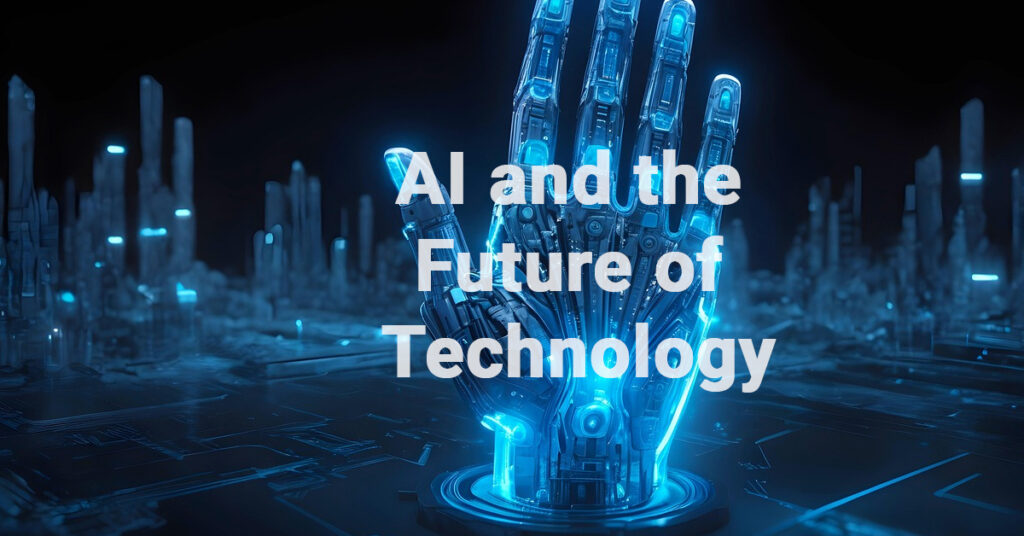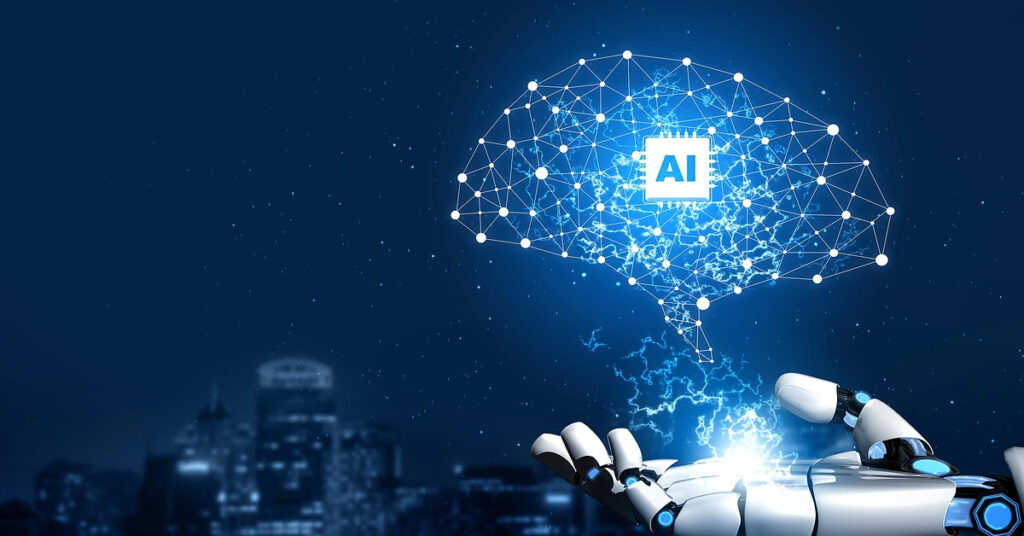How Artificial Intelligence Is Shaping the Future of Technology

Introduction: The Rise of AI in a Changing World
Artificial Intelligence (AI) is no longer a futuristic dream — it’s the reality shaping our everyday lives. From personalized recommendations on streaming platforms to self-driving vehicles and smart healthcare systems, AI is redefining how humans interact with machines. The future of technology is being written right now, and AI sits at the heart of this evolution.
In this era of automation and digital transformation, AI-driven innovations are transforming every sector — from business and education to medicine and entertainment. The question is no longer if AI will change the world, but how fast and how far it will go. Let’s dive deep into how AI, machine learning, and smart systems are revolutionizing the technological landscape.
Artificial Intelligence: The Brain Behind Modern Technology
Artificial Intelligence refers to the simulation of human intelligence in machines — enabling them to think, learn, and make decisions. AI technologies such as natural language processing (NLP), computer vision, and predictive analytics are enabling systems to perform complex tasks with incredible accuracy.
In industries like finance, AI detects fraud within seconds. In healthcare, it assists doctors in diagnosing diseases early. Even in creative industries, AI tools are generating art, writing music, and producing content faster than ever. The goal is not to replace humans, but to amplify human capability — allowing us to achieve more with greater precision and speed.
Future of Technology: Smarter, Faster, and More Human-Centered
The future of technology lies in making machines more intelligent and more human-like in understanding. AI will drive a world where devices not only process commands but also predict needs and understand emotions.
Imagine a smart home that knows when you’re tired, adjusts the lighting, and plays relaxing music automatically. Imagine AI-powered traffic systems that reduce congestion by predicting road conditions in real-time.
This level of integration between AI and technology will make the digital world more intuitive, sustainable, and efficient. It’s a transformation that’s already underway — in smart cities, autonomous vehicles, and virtual personal assistants.
Machine Learning: The Engine Powering AI Innovation
Machine Learning (ML) is the backbone of modern AI. It allows systems to learn from data and improve their performance over time without explicit programming.
Every time you use Google Search, scroll through Netflix, or interact with a chatbot — ML algorithms are analyzing your behavior to deliver more personalized and accurate results. Businesses are using ML to predict customer behavior, automate marketing campaigns, and identify growth opportunities.
Deep learning, a subset of ML, uses neural networks that mimic the human brain to process massive amounts of data — leading to breakthroughs in speech recognition, image processing, and natural language understanding.
Smart Systems and Automation: Redefining Productivity
Automation powered by AI is changing the definition of productivity. Smart systems now handle tasks that once required human oversight — from manufacturing and logistics to data entry and customer support.
In industries like automotive manufacturing, AI-powered robots work alongside humans to ensure precision and efficiency. In agriculture, automated drones and sensors analyze soil and weather conditions to improve crop yields.
AI automation not only increases speed and accuracy but also frees humans from repetitive work, allowing them to focus on creativity, innovation, and strategy.
Digital Transformation: AI as the Catalyst of Global Change
Digital transformation means integrating digital technology into every aspect of business and society. Artificial Intelligence is the main driving force behind this global shift.
Companies are using AI to optimize operations, predict market trends, and provide personalized customer experiences. Governments are leveraging AI for smarter city planning and data-driven policy decisions.
From education to e-commerce, AI-driven digital transformation is leading to a smarter, more connected, and more sustainable world.

Intelligent Robots: The Next Step Toward the Future
Robots powered by AI are no longer confined to factories — they are entering homes, hospitals, and offices. Intelligent robots can perform surgeries, assist the elderly, deliver packages, and even engage in conversation.
As robotics and AI merge, we’ll see machines capable of learning from their environment, making decisions in real time, and adapting to new tasks. This will revolutionize industries and redefine the boundary between humans and machines.
Conclusion: A Future Built by Humans, Enhanced by AI
The future of technology will not just be about smarter machines — it will be about smarter humans using AI responsibly. Artificial Intelligence, Machine Learning, and Automation are tools of progress, not replacement. The real transformation happens when human creativity and AI intelligence come together.
As we step into an AI-driven future, the challenge will be ensuring ethical, fair, and sustainable growth. One thing is certain — AI will continue to shape every aspect of our digital world for decades to come.
? Frequently Asked Questions (FAQs)
1. What is Artificial Intelligence and why is it important?
AI is the ability of machines to mimic human intelligence. It’s important because it enhances productivity, accuracy, and innovation across industries.
2. How will AI impact future technology?
AI will make technology more predictive, efficient, and human-like — transforming industries from healthcare to transportation.
3. What are smart systems and how do they work?
Smart systems use AI and data analytics to make automatic decisions and improve performance without constant human input.
4. How is machine learning different from AI?
Machine Learning is a subset of AI focused on allowing systems to learn from data and improve automatically over time.
5. What industries will benefit most from AI innovation?
Healthcare, finance, manufacturing, education, and retail are among the top sectors seeing rapid transformation through AI.
6. Are intelligent robots replacing human jobs?
Not entirely — they’re designed to assist humans by handling repetitive tasks while humans focus on creativity and problem-solving.
7. How does AI drive digital transformation globally?
AI enhances automation, improves decision-making, and helps businesses adapt to a fast-changing digital landscape.